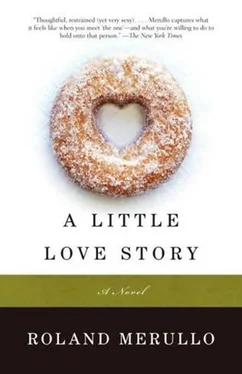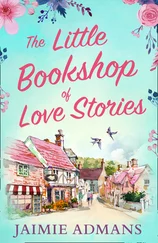“I know all that,” I said.
“And I suppose you also know the survival rate for cepacia patients?”
“Forty percent are alive after two years,” Gerard said. “But the data sample is small.”
“And do you know how fondly the insurance companies look upon those kind of numbers?”
“Your survival rates are better,” Gerard said.
“How do you know?”
“I did some research.”
I looked at Gerard then. Every drop of his usual abrasive and needy goofiness had disappeared. He was like a fact, standing there, a challenge incarnate. He wasn’t blinking.
“Doctor Ouajiballah said he’d go to bat with the insurance company if you’re the surgeon,” I put in.
“Ouajiballah said that?”
“Gave me his word.”
“Gave you this address, too, if I’m not mistaken?”
“Yes.”
He smirked. His horse nickered. “No private detective, then?”
“No.”
“Any other falsehoods involved here?”
“None. Except I’m Entwhistle Fine Arts.”
He looked out past the horse to the expanse of frozen pasture. He should have been chilled by then, standing there in the cold air after a hard run, but there was an odd stillness about him. You couldn’t imagine him being chilled, or afraid, or making a mistake, or admitting to having made a mistake. Exactly the kind of guy you wanted if you or someone you loved were about to be cut open. For probably a full thirty seconds he didn’t speak to us or move, and then, without looking at us, he said, “I’ll take the painting-my wife liked it-and I’ll call you within twenty-four hours with an answer.”
“Fine,” I said, and he cut me off when I started to thank him.
“I will tell you I’m leaning toward no.”
“Why?” Gerard said.
The doctor turned his head and sent Gerard a look that was lined with ugliness, and I could see the pride in his pale eyes as clearly as if it had slithered up his spine and out through the front of his pupils.
“Oops, sorry,” Gerard said, not very sincerely. I saw something in my friend then, some old bad energy from the streets where he had been brought up. I did not know if the doctor could see it. “We’re sure you have your reasons. Look, let me carry this into the house for you while Jake closes up the box and cleans up this mess. And then you’ll never see either of us again unless you decide to cut us open.”
“I wouldn’t cut you open,” the doctor said. “Someone else does that. I cut her open.”
That’s comforting , I almost said. In fact, I came within an absolute whisker of saying it, because I had just given away a painting that meant everything to me, and was going to get nothing in return, and because, by then, I felt I was in the presence of a thin slice of something almost hideous between two pieces of remarkable talent. Gerard felt it, too, I knew that. We had our own proud serpents pressing out through our eyeballs. I thought of Janet pursing her lips. I said, “Again, our apologies. I know we’ve intruded and I appreciate it that you’re even willing to think it over. My mother was a doctor-Judith Entwhistle-and I know she would have been pissed as hell if the friends of a patient ever came driving up to her house asking for special care.”
“I appreciate it, too,” Gerard said, but there was a note of disgust in his voice. He was hoisting the painting over his head, just pressing in against the outside edges with the palms of his hands, not a fingerprint anywhere, showing off his upper-body strength. He walked up the path that way, two steps ahead of the good doctor.
I picked up the bubble wrap and plastic sheeting and jammed it into my homemade crate. Threw in two of the wing nuts and bolts and twisted the other two in place. I sat in the truck with the heater on and looked at the horse in the pasture-creature of incredible grace. I had a few sketches of her at home, photographs. I could try to make another painting, though there is a difference, painting someone who is right there in front of you, alive.
Gerard stayed inside the mansion for eight or ten minutes-giving detailed hanging instructions, I guessed. At last, I heard his boots on the gravel, then the passenger door closing. I put the truck in gear and we rattled down the long driveway, onto Madison Road, back in the direction we had come, past the library, past mansion row, and then down into the upper class.
“I see sufficient reason for hope, Colonel,” he said.
“Not a prayer.”
“I worked him a little.”
“Tell me you didn’t talk to him about Giselle.”
Gerard shook his head. He never mentioned Giselle’s name, under any circumstances. “I complimented his horse,” he said. “You should have seen his eyes light up. Then I made my face ugly-you know how I do, you know how much work it takes-and I asked him if he remembered that fabulous scene from The Godfather , Part One. The horse’s bloody head under the sheets. His wife was watching, fresh from her shower. I said it in a happy voice, my crazy happy voice. I made my eyes just the tiniest bit crazy, like it was just a little goofy joke.”
“Thanks,” I said.
“No problem.”
“We’ll end up in jail.”
WHEN WE WERE BACK in the busyness of downtown Boston, Gerard turned serious, which happens to him about once every lunar cycle. I always know when this turning-serious is coming because he has a certain way of tapping his left work boot in a slow, steady rhythm. These are the kinds of things you learn about people when you build houses with them for a lot of years, smash fingers with them, drop $650 replacement windows when they are holding the other side, find some ingenious way of making up for an architect’s oversight after you’ve spent an hour cursing, put in a very hard week of hammering and then go out someplace and have a cranberry juice with a twist of lime and tell lame jokes.
“You know,” he said, in what I think of as his “normal” voice, “I like what we do pretty well, I enjoy it. But I think if I ever come into a lot of money someday-I don’t know how that could ever happen; maybe we’ll buy an old triple-decker someplace and fix it up and sell it for a huge profit-then what I want to do is open a nightclub for crippled and deformed people. A place where they can go and dance and listen to music and have a drink and not worry about anyone looking at them, you know? I’ve had this dream since college. Handsome people, pretty people, people who can walk right-we wouldn’t let them in the door. Just men and women in wheelchairs, legless people, spastics, hunchbacks. I mean it. That’s my real dream, if you want to know.”
“It’s a good dream,” I said. We drove a little ways. I thought about his dream. I said, “You don’t have your girls this weekend, am I right?”
“The colonel is correct.”
THAT AFTERNOON I called my apartment from the job site every half hour. Gerard and I were within about one full workday of finishing Jacqueline’s addition, and when she came home from her afternoon class and saw how close we were, she went floating through the rooms with her arms held out like the wings of a gliding falcon. It was our turn to watch and smile. She stood at different windows, she paced off part of the sunny second-floor room where her bed would be, opening and closing a beautiful little cherry cabinet Gerard had fashioned for a corner of her new bathroom. It had been a nice project. Besides building the two stories of new rooms, we’d sort of reached into the adjacent part of the old structure and cleaned up some of the messy work there from a hundred years ago-taken out old rough-sawn, weird-dimension studs and bulging lath and plaster and replaced them with new spruce two-by-fours and Sheetrock, leveled the old floors in two rooms so they matched up evenly with the new ones, improved the insulation in the part of the wall cavity we could get to. Everything had come out smoothly, almost perfectly. But I had the cold understanding then, watching her enjoy our work, that I would always think of Janet when I drove past this place.
Читать дальше












